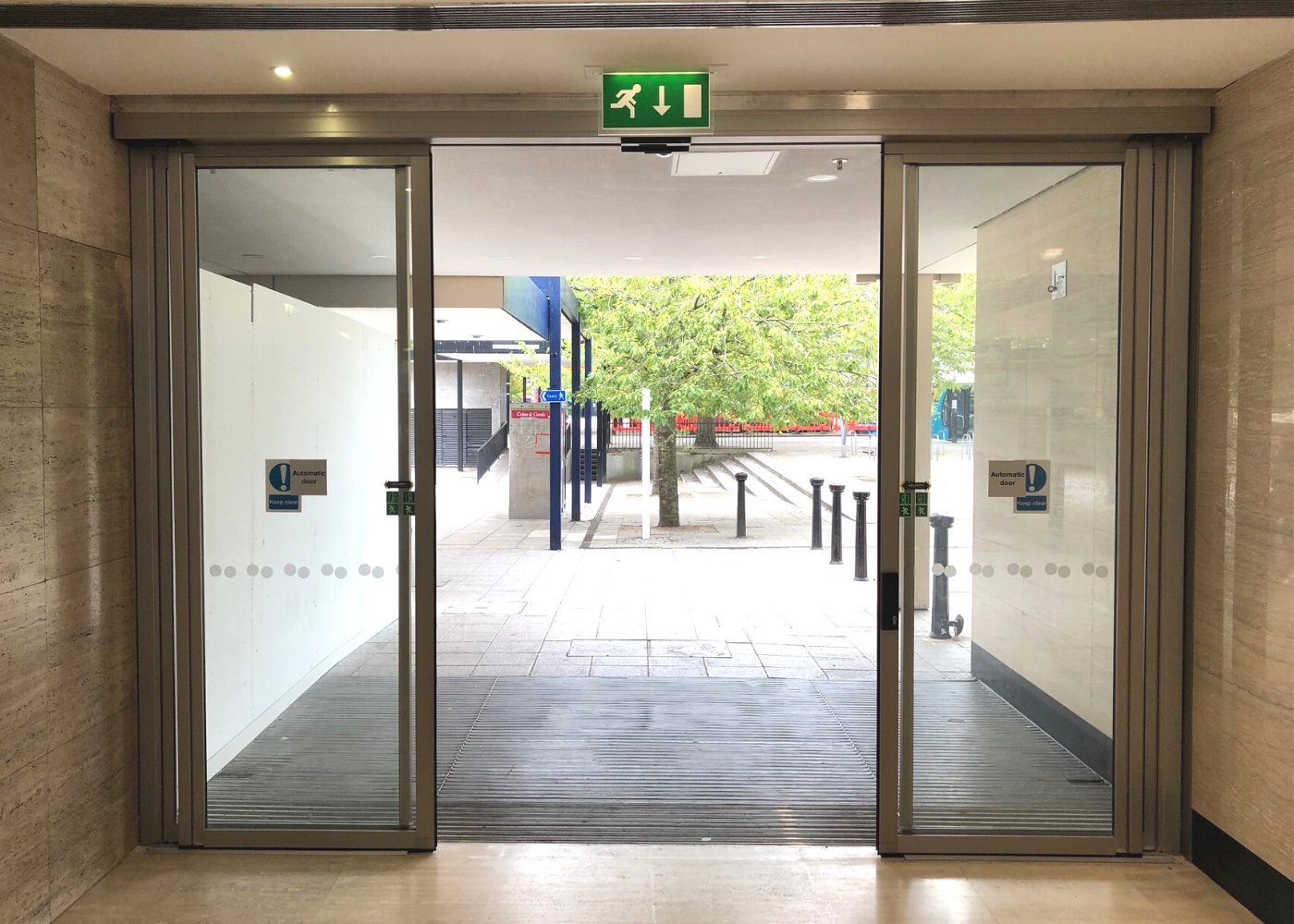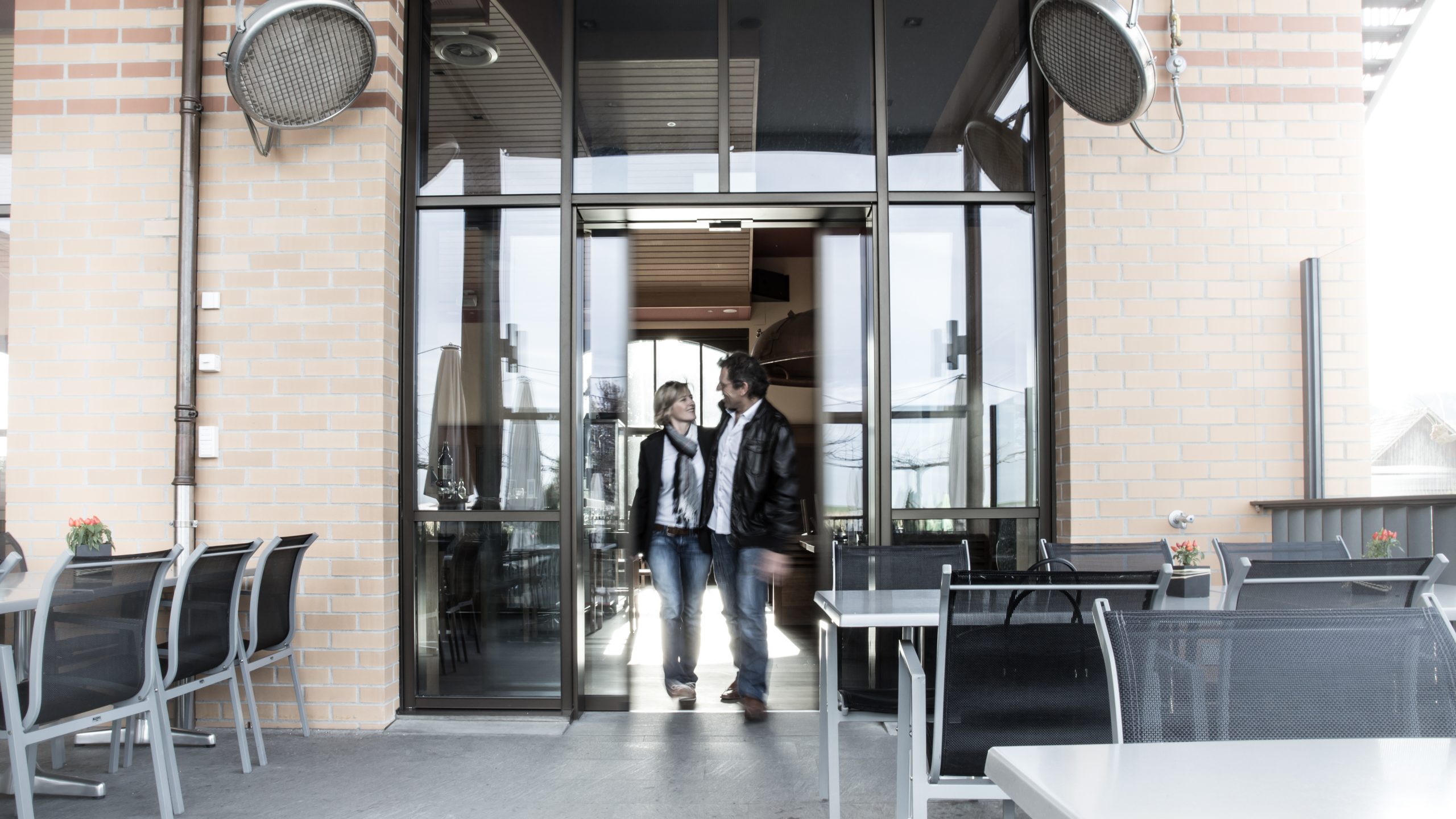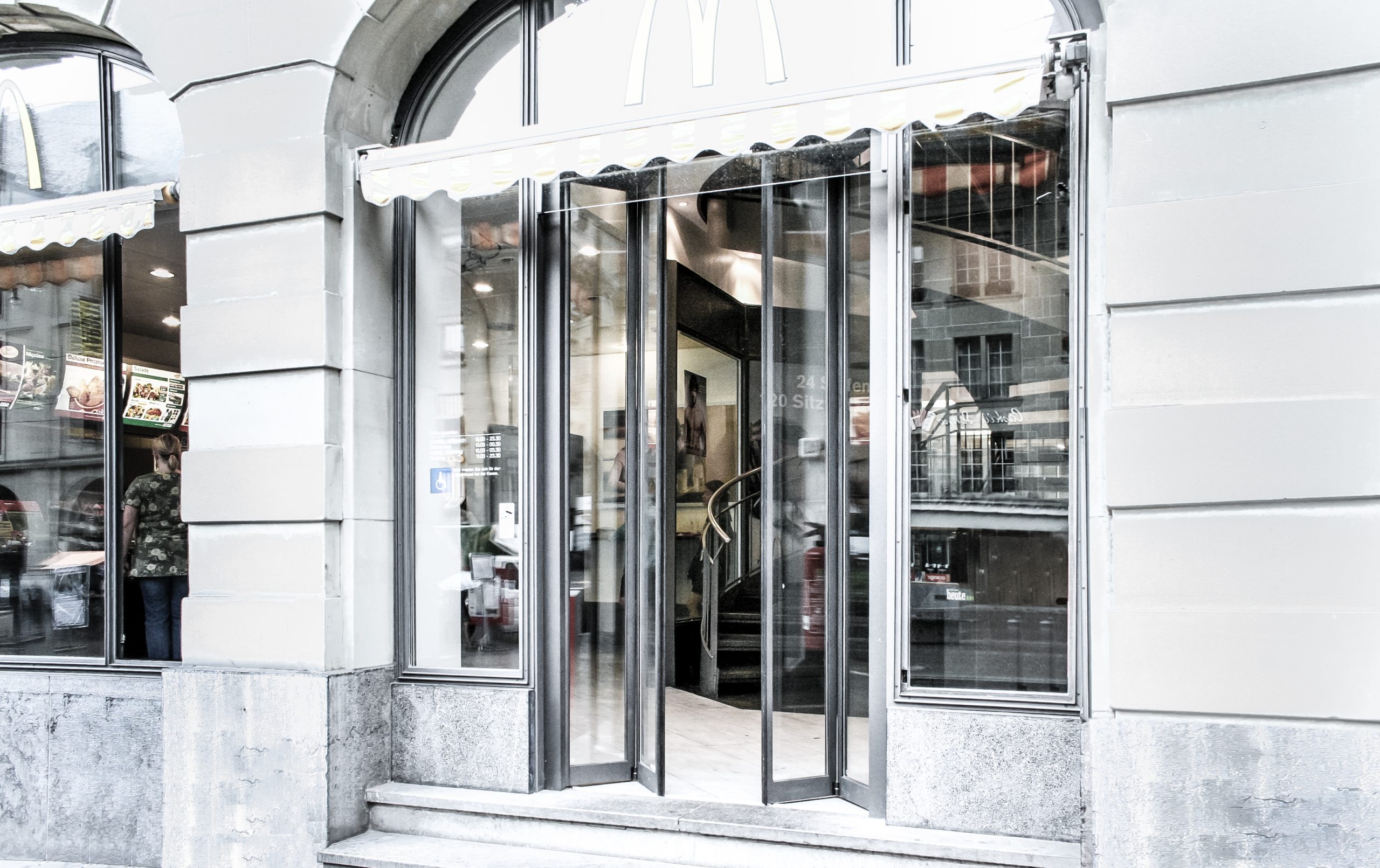How do automatic door systems actually work?

06.07.2023
Automatic doors have become a common feature in day-to-day life. They can be found in shopping centres, airports, hospitals, office blocks and numerous other places. Automatic door systems have become so common, that you probably can’t imagine a world where you have to physically open the door at a supermarket.
Developed over the last several decades, automatic doors allow easy access to buildings for those with disabilities and they help to maintain high levels of hygiene as they eliminate the need for physical contact.
How automatic doors work & why they’re needed
As their name suggests, automatic doors open automatically as soon as a person approaches. Here’s a look into the technology and mechanisms that enable automatic doors to open and close seamlessly:
Sensor systems
Automatic doors are equipped with sensor systems that detect the presence of people or objects in their vicinity. These sensors use various technologies, such as infrared, microwave, and motion detectors, to detect movement or changes in the surrounding environment. When a person approaches the door, the sensors send a signal to the control mechanism, initiating the door’s opening sequence.
At GDUK Door Solutions our automatic doors feature state-of-the-art motion detectors that utilise advanced technology to precisely detect and respond to human movement, ensuring seamless and secure automatic door operation.
Control mechanism
The control mechanism is the brain behind the operation of automatic doors. It receives signals from the sensors and processes them to determine the appropriate action.
It controls the speed, timing, and direction of the door’s movement. The control mechanism ensures that the door opens smoothly and safely, allowing people to pass through without any hindrance.
Activation methods
Automatic doors can be activated in different ways, depending on the specific design and purpose. Some common activation methods include:
- Motion sensors: These sensors detect movement within a designated range. When a person approaches the door, the sensors trigger the door to open.
- Push buttons: These are manual activation devices that allow users to open the door by pressing a button.
- Proximity sensors: Using radio frequency identification (RFID) or similar technologies, proximity sensors detect electronic keycards or other authorised devices. This enables controlled access to specific areas.
- Pressure mats: Installed on the floor near the door, pressure mats detect the weight of a person standing on them. This triggers the door to open.
Opening and closing mechanisms
Automatic doors employ different mechanisms to facilitate their opening and closing actions. The most common mechanisms include:
- Sliding doors: Sliding doors are often found in commercial buildings. They operate on a track system, with panels that slide horizontally to open or close the doorway.
- Swing doors: Swing doors, similar to traditional hinged doors, pivot on hinges and swing open or closed when activated.
- Folding doors: Folding doors consist of multiple interconnected panels that fold as the door opens. This design is often used in areas with limited space.
Safety features
Automatic doors are equipped with safety features to ensure the wellbeing of users. These include:
- Safety sensors: Additional sensors are installed near the edges of the door to detect any obstructions. If an object or a person is detected, the door will reverse its movement to prevent accidents.
- Emergency opening: In case of power failure or emergency situations, automatic doors are equipped with manual override mechanisms, such as a lever or a push bar, allowing people to open the door manually.
Contact us
Automatic doors have revolutionised the way we navigate public spaces, providing convenience, accessibility, and improved efficiency. From sensor systems to control mechanisms, and activation methods to safety features, every component plays a crucial role in ensuring the seamless operation of automatic doors.
If you’d like more information on the automatic doors we offer at GDUK Door Solutions or have further questions about how they work, please call 0800 316 6994, or email us at info@gdukds.com. A member of our team will be happy to help!
More News
11.10.2023
How to embrace inclusivity with automatic door systems
In today’s world, inclusivity is not just a buzzword; it’s a fundamental principle that should
12.02.2024
The business benefits of commercial folding doors
In the commercial world, efficiency and aesthetics have become paramount. As businesses strive to create
31.03.2023
2023 International Security Expo
GDUK Door Solutions to exhibit at this at this year’s international security event at Olympia.





